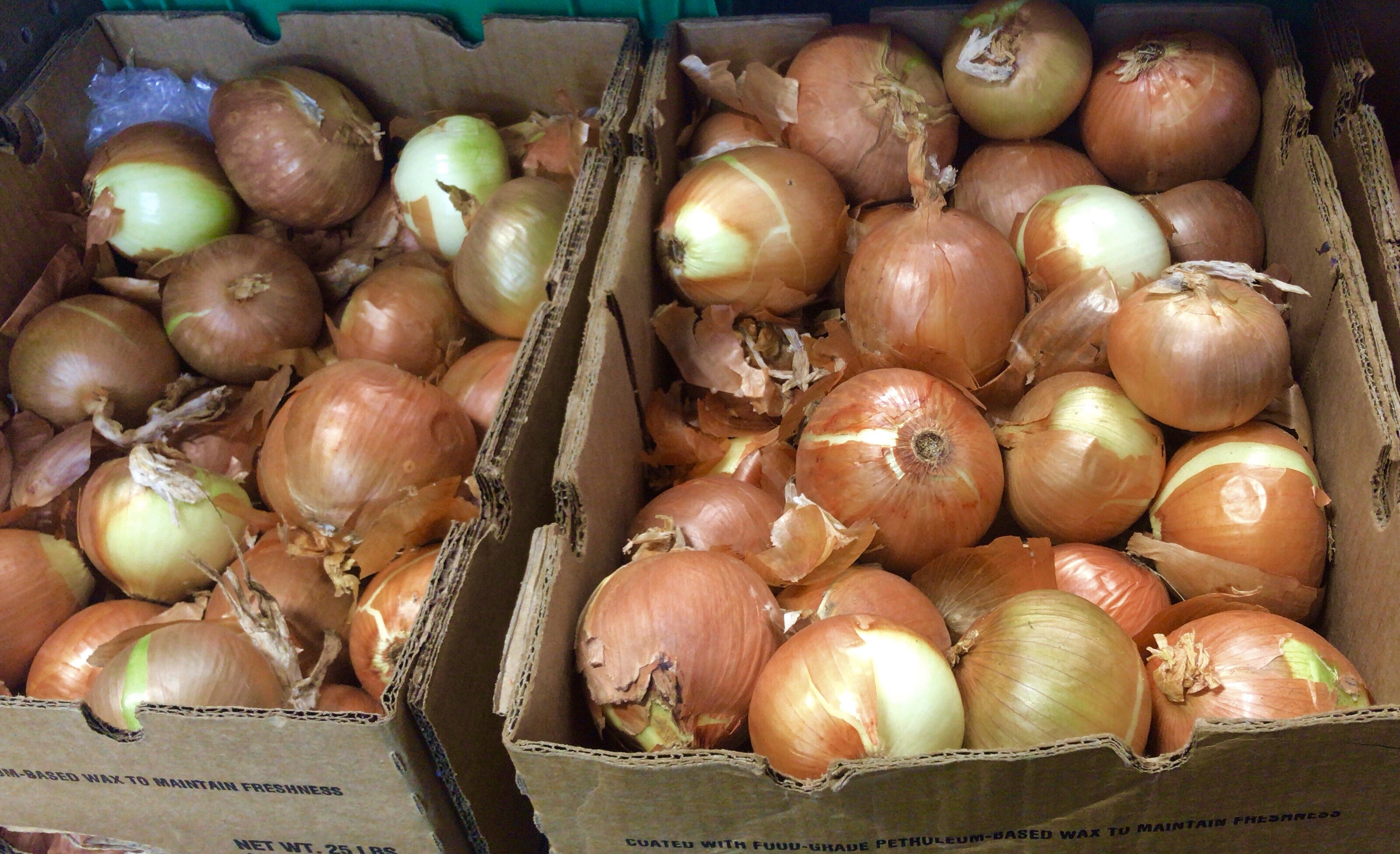April 27, 2019
Mississauga, Ontario
The Pakistani grocery store a couple of blocks away from my house was packed from one end to the other the week before Ramadan. Even with the uncertainty of whether the month of fasting is going to start the following Sunday or Monday, for a lot of Muslims, the process begins early. Aunties pulled a couple of red plastic shopping carts behind them, each designated for vegetables and frozen foods. Potatoes, tomatoes, mounds of onions, and parathas were staples in all of the baskets. The meat is usually picked up later, after payments have been made. I brought my own reusable bags. For a month largely spent not eating, most of the prep is food-related.
I spend a lot of time here most weekends to stock up for the week, but this pre-Ramadan Saturday at the market was a kind of community-wide get-together. The men and women naturally broke off into groups; one group gathered in the produce section and swapped easy recipes as over a bag of tamarind candy. Another group hovered by the TV in the meat section to discuss Pakistani politics. I took mental notes on how to make eggplant cook quickly, the benefits of eating semolina for Sehri, and the cabinet reshuffle. The shelves were all well-stocked with spice mixes that make for easy substitutes, but they have a lot of additives, so I follow my mom’s recipes and make spice mixes from scratch.

The fasts this year are going to be almost 17 hours long in Toronto. I usually make fresh meals for my brother, sister, dad, and sister-in-law after work, but during Ramadan it’s hard to cook every day. Every weekend, I prepare all of the meals for the coming week. My brother makes roti to accompany whatever the main dish is the night of. This weekend, I was going to cook qeema, qorma, fish curry, two types of daal, gobi ki bhujia, and mattar aloo. I would freeze these meals in medium sized aluminum containers and label them with days of the week. These were the essentials for the first week, which is always the hardest. In the evenings, I usually make fruit chaat, an assortment of finely chopped fruit with lemon juice, honey, salt and pepper. As a treat, I fry pakoras on Fridays, I have to prep, portion and freeze the batter. When my mom was alive, she used to regularly make extra food to send to our neighbors all month long. Two years after we lost her, I’m finally ready to continue that tradition, so I bought additional aluminum containers for sharing.
When I got home, I organized all the purchases in my fridges—one of the biggest challenges. We have two and I still barely fit everything in. No one else is allowed to move things around in there while I’m cooking, or everything will topple out. I started the cooking process with the most important task in making South Asian food – cutting onions. Almost every single one of my mom’s recipes requires at least one medium sized onion. This afternoon, I was going to cut a total of 11. After the first 5, my eyes adjusted to the stinging. I marinated all of the meat, and baked the large pieces of cauliflower in turmeric, kolanji, red chilli powder, half a lemon and yogurt. My dad complained that the smell is probably travelling throughout the street, but I told him it is all part of celebrating the occasion. My 18-month-old niece sat on her booster-chair and watched while I cooked. I taught her how to say the names of vegetables on the counter in Urdu. “Mattar” (peas) was her favorite to say. After the onions caramelized, the rest of the cooking process was pretty repetitive. The spices I put in the vegetables were all similar, if not the same, and I’ve made the meat dishes so many times that it has become second nature. Just in case, I had back-up zip-lock bags full of cumin seeds, dried red peppers, and coriander powder next to the oven.

A large part of my practice before this holy month begins is donating all of the extra clothing, appliances, and utensils we have. Our local mosque passes along these necessities to other members of the community. I put jeans, blouses, scarves, a kettle, and Tupperware containers into several boxes. For my family, and many others, Ramadan is a time for reflection. The days seem really long, almost like time is pausing to allow us to observe.
I also see Ramadan as a special treat, an opportunity to present my most authentic self. Usually, the clothes I wear allow me to assimilate easily with the people around me. We have a basement full of salwar kameez we have collected over years, gifts from grandparents, aunts and uncles, and I wear them to work every day during this month. Once the cooking and cleaning and sorting was complete, I selected the pieces I want to wear over the next month, and ironed them. I replaced the dresses and blazers in my closet with them.
While I was cooking, and trying on decade-old kurtas that smell faintly of my mom’s perfume, I realized how desperately I was waiting for this month to begin. I really needed it.






